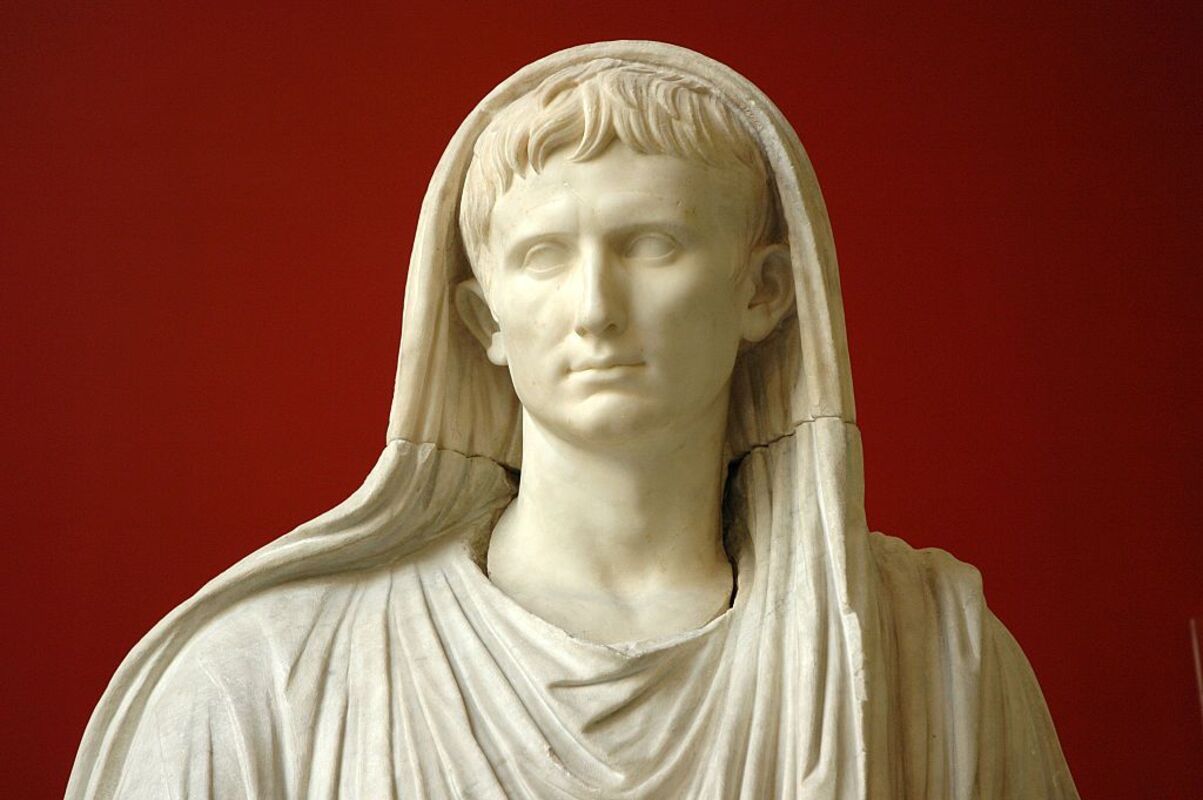Octavian Augustus was the first emperor of the Roman Empire, a figure who stood at the intersection of the Republic and the Empire. His life was filled with events that fundamentally changed the course of Roman and European history. Through intelligence, cunning, and political skill, he managed to hold onto power during a turbulent time of civil wars. In this collection, we present fascinating facts that reveal surprising aspects of his reign, personality, and influence on Roman society. Dive into the past and discover incredible facts about one of the most renowned leaders of antiquity.
- Octavian Augustus was born on September 23, 63 BCE, in Rome, under the name Gaius Octavius. His mother was the niece of Julius Caesar, giving him a family connection to the powerful dictator. This connection later paved the way for his political ascent. His path to power began with this familial privilege.
- In his will, Julius Caesar adopted Octavian, granting him not only legal legitimacy but also significant influence among Caesar’s supporters. After the adoption, he became known as Gaius Julius Caesar Octavian and began his rise to power under this new name. Many doubted his abilities due to his young age, but he quickly proved himself politically capable. The adoption was a pivotal moment in his life.
- At just 19 years old, Octavian began assembling his own army to avenge the death of his adoptive father. He formed an alliance with Mark Antony and Marcus Aemilius Lepidus, known as the Second Triumvirate. Together, they pursued Caesar’s assassins and divided control of Rome among themselves. However, the alliance was temporary and marked by internal tension.
- Octavian eventually clashed with Mark Antony, who had become closely involved with Cleopatra of Egypt. Their conflict culminated in the naval Battle of Actium in 31 BCE, where Octavian’s forces secured a decisive victory. The defeat of Antony and Cleopatra allowed him to gain full control over the eastern provinces. From then on, he became the sole ruler of Rome.
- In 27 BCE, the Senate officially granted Octavian the title of Augustus, which meant “venerable” or “majestic.” From that point, he became known as Emperor Augustus, although he never formally declared himself a king. He skillfully maintained the illusion of republican institutions while holding all real power. This political balance ensured his long and stable reign.
- Augustus reformed the Roman army, creating a professional military force with regular salaries and long-term service. He also established the Praetorian Guard as his personal bodyguard. These actions strengthened his rule and reduced the threat of military coups. His army became the backbone of imperial stability and expansion.
- During his reign, Rome underwent massive architectural development. Augustus boasted that he had found the city made of brick and left it made of marble. He restored old temples, built new forums, and launched a wave of urban transformation. Architecture became a symbol of his imperial vision.
- Augustus took an active role in regulating the moral life of citizens, enacting laws that encouraged marriage and childbirth. His legislation punished adultery and immoral behavior, even among the elite. These measures aimed to strengthen family values and promote population growth. He viewed moral discipline as essential to the health of the state.
- Despite his power, Augustus experienced numerous personal tragedies, especially within his family. His only daughter, Julia, was exiled for violating the moral codes he had enacted. Most of his potential heirs died before him, complicating the question of succession. Only late in his life did he designate Tiberius as his official successor.
- During Augustus’s reign, historians believe Jesus Christ was born. This links his figure not only to political history but also to spiritual transformation in human civilization. Although Augustus had no connection to Christianity, his name appears in the Gospel of Luke. He ruled during a time that marked the beginning of profound global changes.
- Augustus was a master of public image and propaganda. He carefully controlled how he was portrayed in art, on coins, in inscriptions, and in statues. His portraits were designed to be instantly recognizable throughout the empire. Visual consistency played a central role in building his cult of personality.
- In private life, Augustus was known for his modesty and simplicity. He lived in a relatively humble house on the Palatine Hill and avoided excessive luxury. Even in food, he practiced moderation, which stood in contrast to the lifestyle of the Roman elite. His way of living was intended to serve as an example to Roman citizens.
- His reign lasted over 40 years, making it one of the longest in Roman history. He died in 14 CE at the age of 75. His death marked the end of an era that later historians would call the Pax Augusta or “Augustan Peace.” It was a time of relative calm following decades of civil conflict.
- After his death, the Senate deified Augustus, officially recognizing him as a god. His cult continued for many years and supported the legitimacy of future emperors. Temples dedicated to him were built throughout the empire. His deification was the ultimate recognition of his importance to Roman identity.
- The name Augustus became the standard title for subsequent Roman emperors, symbolizing continuity of power. Over time, it gained almost sacred significance. It became the basis for the word “emperor” in many European languages. Even today, the name Augustus evokes a sense of grandeur and authority.
These fascinating facts offer a deeper understanding of Octavian Augustus, who was far more than the founder of the empire. He was a strategist, a reformer, a propagandist, and a man with personal triumphs and sorrows. You may not have known just how influential and multifaceted this historical figure truly was. His legacy continues to inspire curiosity and admiration across centuries.





